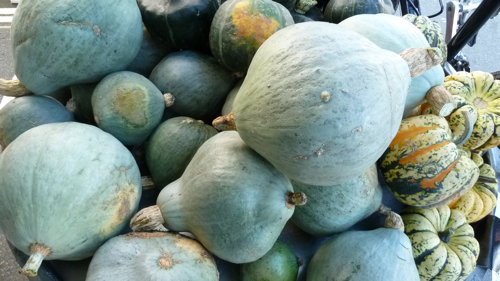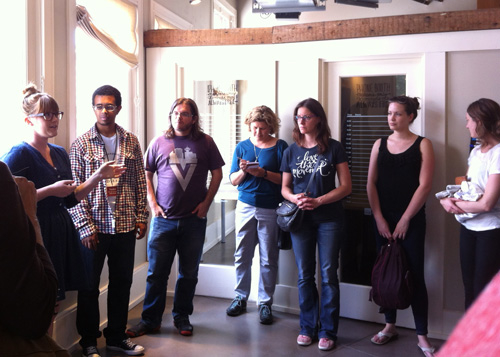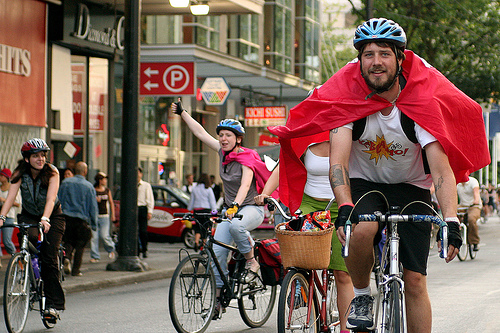New York City: Modelling eco-density, except for waste
 Photo by Leslie Duss via Flickr
Photo by Leslie Duss via FlickrI recently wrote about New York City’s transportation and public space plans and progress. (It was written too quickly and wasn’t very thorough unfortunately — a product of daily blogging.) Hot on those heels, today’s Vancouver Sun opinion piece may spur a little competition if not debate over whether NYC does indeed take the green cake in North America. With Vancouver’s plans unfolding, the Big Apple may not hold on to this position, but this kind of competition is good. Among American cities, however, I’m torn between Portland and Manhattan as the greenest. (The author doesn’t mention Mexico.) To be convinced, I’ll be hearing David Owen’s argument at his lecture, Why Manhattan Is the Greenest City in North America, Thursday, March 17. (Vancouver Playhouse, 7:30pm. Free. Register with lzanatta [at] telus.net)
It’s a great article with some encouraging facts, like 82% of employed Manhattanites commute to work by public transit, bicycle or on foot. This is 10 times higher than the rest of their countryfolk. “Fifty-four per cent of New York City households — and 77 per cent of Manhattan households — own no car at all,” Owen writes. Compare that to the rest of the US and Canada where car ownership is nearly 100%.
Ironically, printed at the front of the section on the same sheet is an article admitting NYC’s compost program was unsuccessful. I think the “yuck factor” is really lame — suck it up, people, it’s not that bad — but the logistics of collection, transportation and ultimately where to put it is a problem pretty unique to NYC with its eight million people and shoebox apartments. Coquitlam Mayor Greg Moore doesn’t anticipate such an issue for Metro Vancouver, and Richmond Councillor Harold Steves (father of the ALR!) pointed out NYC has waste issues on a scale Vancouver doesn’t have.
Our region’s garbage is about 40% organics (e.g. kitchen scraps), which is staggeringly high. Some recyclables still end up in the garbage as well, so if we can eliminate both, we’d have very significant impacts on our waste stream and greenhouse gas emissions (rotting food and transporting waste are heavy emitters).
It sounds like New York has some catching up to do toward us (our recycling diversion rate is 5% higher), and we have some catching up to do toward them. I’m sure David Owen’s talk will initiate a great exchange of green ideas.
 This daily green blog challenge is in celebration of David Suzuki’s 75th birthday, supporting the David Suzuki Foundation. Please help me out by sponsoring me online now.
This daily green blog challenge is in celebration of David Suzuki’s 75th birthday, supporting the David Suzuki Foundation. Please help me out by sponsoring me online now.
Note: I am writing solely on my own behalf, and do not claim to represent the David Suzuki Foundation or its views here.



